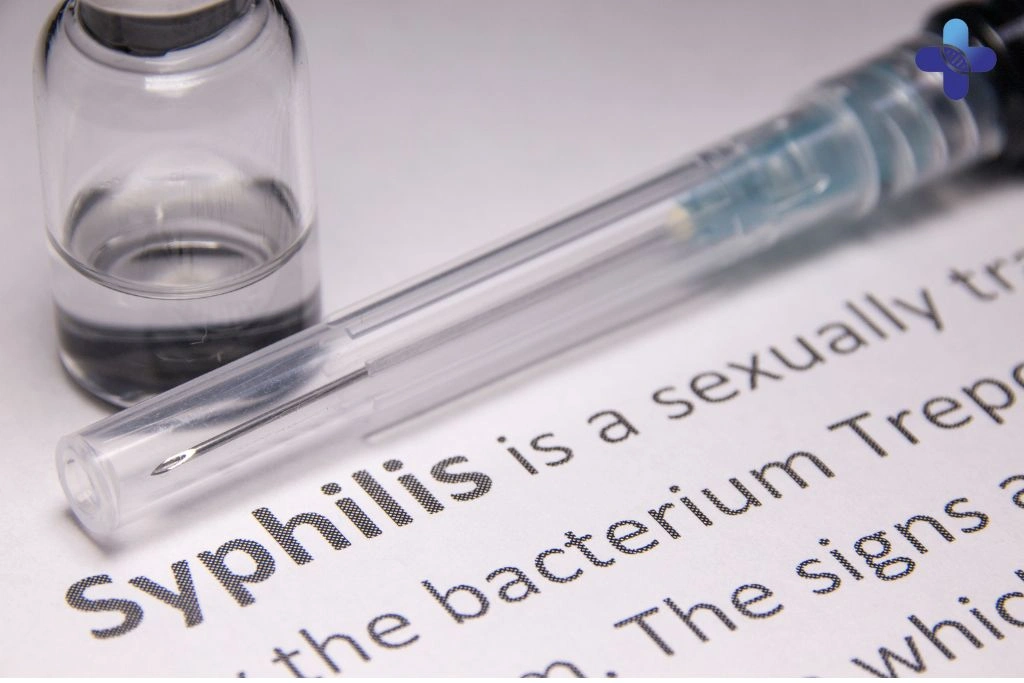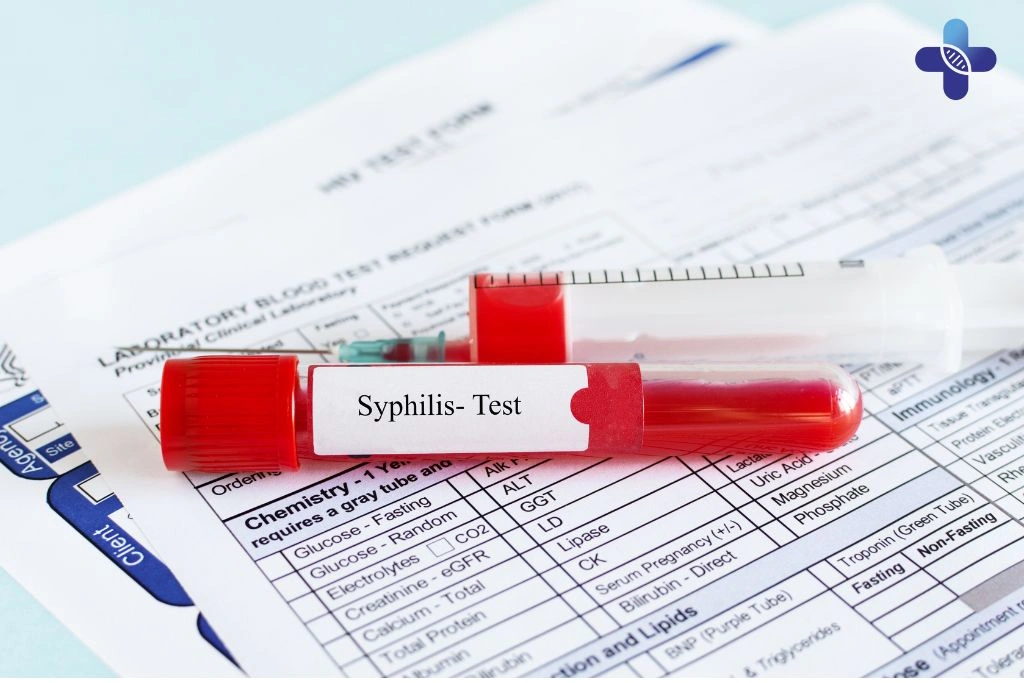Syphilis is a serious sexually transmitted infection (STI) that has been increasing globally, including among travelers and expatriates in Bali. As one of the most STDs in Bali, it poses a significant health risk, particularly for those engaging in unprotected sexual activity. While many visitors come to Bali for its stunning beaches and vibrant nightlife, it’s essential to stay informed about health risks like syphilis. If left untreated, this infection can cause severe complications, including neurological and cardiovascular damage, making early detection and treatment crucial. Life Everyouth Clinic Bali provides confidential testing, diagnosis, and treatment to help individuals protect their health.

Syphilis in Bali: Understanding the Causes, Symptoms, Transmission, and Health Risks
Syphilis is a serious sexually transmitted infection (STI) that continues to affect individuals worldwide, including travelers and expatriates in Bali. This bacterial infection, caused by Treponema pallidum, progresses through multiple stages, each with distinct symptoms that can lead to severe health complications if left untreated. Syphilis spreads primarily through unprotected sexual contact, but it can also be transmitted from mother to child during pregnancy. Without timely diagnosis and proper treatment, it can result in neurological disorders, cardiovascular issues, and even organ damage. Understanding how syphilis is transmitted, recognizing its symptoms early, and seeking medical care at a trusted Bali medical clinic are essential steps in preventing its long-term effects.
Causes of Syphilis in Bali
Caused by the Bacterium Treponema pallidum
Syphilis is caused by the bacterium Treponema pallidum, which enters the body through mucous membranes or broken skin. Once inside, the bacteria spread through the bloodstream, affecting various organs and tissues over time. If left untreated, syphilis can progress to severe complications, making early detection essential.
Unprotected Sexual Contact
The primary mode of syphilis transmission is through unprotected vaginal, anal, or oral sex with an infected person. The bacteria spread when an individual comes into direct contact with a syphilitic sore (chancre), which often goes unnoticed because it is painless and may appear in hidden areas like the genitals, anus, or inside the mouth.
Mother-to-Child Transmission (Congenital Syphilis)
Pregnant women with untreated syphilis can pass the infection to their unborn babies, leading to congenital syphilis. This condition can cause severe complications, including miscarriage, stillbirth, premature birth, or birth defects affecting the baby’s organs, bones, and nervous system. Early prenatal screening and treatment are crucial in preventing congenital syphilis.
Blood Transfusions and Non-Sexual Contact (Rare Cases)
Although extremely rare, syphilis can be transmitted through blood transfusions if the donated blood is infected and has not undergone proper screening. Additionally, direct contact with contaminated needles or open wounds may pose a transmission risk. However, casual contact, such as hugging, sharing food, or using public facilities, does not spread syphilis.

How Syphilis is Transmitted
Syphilis spreads when Treponema pallidum, the bacteria responsible for the infection, enters the body through direct contact with syphilitic sores or lesions. Transmission primarily occurs through sexual contact, but other forms of transmission can also pose serious health risks. Understanding these pathways is crucial in preventing infection and seeking timely treatment.
Unprotected Sex (Vaginal, Anal, or Oral) with an Infected Person
The most common way syphilis spreads is through unprotected sexual intercourse, including vaginal, anal, and oral sex. The bacteria can pass from one person to another when syphilitic sores (chancres) come into contact with mucous membranes or broken skin. Since these sores are often painless and hidden in areas like the genitals, anus, or mouth, many individuals unknowingly transmit the infection. Consistently using condoms and dental dams can significantly reduce the risk of transmission, but they do not eliminate it completely.
Direct Contact with a Syphilitic Sore
Syphilis is highly contagious in its primary and secondary stages, as these are when sores or rashes are present. Even if penetration does not occur, coming into direct contact with an infected person’s syphilitic sore—such as through deep kissing, foreplay, or oral contact with infected areas—can result in transmission. This makes it crucial to get regular STD screenings if you are sexually active, especially with new or multiple partners.
Mother-to-Child Transmission During Pregnancy
Pregnant women with syphilis can pass the infection to their unborn baby, a condition known as congenital syphilis. This can lead to severe complications, including miscarriage, stillbirth, premature birth, or birth defects affecting the baby’s brain, bones, and organs. Infected newborns may not show symptoms immediately, but untreated congenital syphilis can cause developmental delays, blindness, deafness, or even death. Early prenatal testing and treatment are essential to prevent these risks.
Risks of Untreated Syphilis
Syphilis is a progressive infection that worsens over time if left untreated. While it may start with mild symptoms, the long-term effects can be devastating, leading to serious health complications that affect multiple organs. Early diagnosis and treatment are essential to prevent irreversible damage.
Neurological and Cardiovascular Complications
When syphilis reaches the tertiary stage, it can cause severe damage to the nervous system and cardiovascular health. This stage may take years or even decades to develop, but once it does, the consequences can be life-threatening.
- Neurosyphilis: Syphilis bacteria can invade the brain and spinal cord, leading to memory loss, confusion, vision problems, paralysis, or even stroke.
- Cardiovascular Syphilis: The infection can weaken blood vessels, particularly the aorta, increasing the risk of aneurysms, heart failure, or sudden cardiac death.
These complications are irreversible, making early treatment at a Bali medical clinic critical in preventing long-term damage.
Increased Risk of HIV Infection
Individuals with untreated syphilis are at a higher risk of contracting HIV, as syphilitic sores make it easier for the HIV virus to enter the bloodstream. Studies have shown that syphilis can increase HIV transmission rates by two to five times, making it one of the most significant risk factors for co-infection. Because of this, many healthcare providers recommend HIV testing alongside syphilis screening for anyone diagnosed with the infection.
Infertility and Pregnancy Complications
Untreated syphilis can have severe reproductive health consequences, affecting both men and women.
- In Women: Syphilis can cause pelvic inflammatory disease (PID), miscarriage, stillbirth, or premature labor. If passed to a baby during pregnancy, it can lead to congenital syphilis, which may cause birth defects, developmental issues, or neonatal death.
- In Men: Advanced syphilis may damage the testes and reproductive system, leading to reduced sperm quality and fertility issues.
Diagnosis and Treatment of Syphilis in Bali
If you suspect syphilis, visit a Bali medical clinic for screening and treatment. Testing involves a blood test, and treatment typically consists of antibiotic injections, such as penicillin. Clinics like Life Everyouth Bali offer reliable STD testing and treatment services in Bali.

Tips: How to Protect Yourself from Syphilis in Bali
Taking proactive steps to protect yourself from syphilis is essential, especially if you are sexually active or traveling. Syphilis is highly preventable, and following these guidelines can significantly reduce your risk of infection while ensuring your overall sexual health.
Use Protection: Always Use Condoms During Sexual Activity
Using condoms or dental dams consistently during vaginal, anal, and oral sex is one of the most effective ways to reduce the risk of contracting syphilis. However, condoms do not offer 100% protection since syphilis can still be transmitted through contact with sores outside the protected area. Pairing condom use with regular STI testing offers better protection against syphilis and other infections.
Get Tested Regularly: Frequent STI Screenings Are Crucial
Many individuals with syphilis may not experience noticeable symptoms, making regular STI testing critical in early detection. If you are sexually active, especially with multiple partners or new partners, it is recommended to get tested every 3–6 months. At Life Everyouth Clinic Bali, a leading medical clinic in Bali, you can access confidential and reliable STI testing to ensure your health is in check.
Avoid High-Risk Encounters: Be Mindful of Casual and Unprotected Sexual Experiences
Engaging in unprotected sex with new or multiple partners increases the likelihood of exposure to syphilis. High-risk behaviors such as casual sexual encounters, sex with sex workers, or unprotected group sex heighten the risk of contracting STIs. Being mindful of these risks and taking preventive measures can help safeguard your health.
Seek Immediate Treatment: Consult a Medical Clinic in Bali Without Delay
If you notice any unusual sores, rashes, or flu-like symptoms, it is crucial to seek immediate medical evaluation. Early-stage syphilis is easily treatable with antibiotics, but delaying treatment increases the risk of complications. Life Everyouth Clinic Bali provides comprehensive STD screening and treatment to ensure you receive prompt and effective care.

Conclusion of Syphilis in Bali: Symptoms & Prevention
Syphilis is a preventable and treatable condition, but early detection is key. If you are in Bali and suspect an STI, seek medical assistance immediately. Life Everyouth Clinic Bali provides comprehensive STD testing and treatment to ensure your health and safety while enjoying your time in Bali.
Frequently Asked Questions of Syphilis in Bali: Symptoms & Prevention
Where can I get tested for syphilis in Bali?
If you are in Bali and need a syphilis test, you can visit Life Everyouth Clinic Bali, a trusted medical clinic in Bali that offers confidential and accurate STD screenings. Other reputable Bali medical clinics also provide syphilis testing and treatment services. Early diagnosis is crucial to ensure effective treatment and prevent complications.
What are the early symptoms of syphilis?
The first sign of syphilis is typically a painless sore (chancre) that appears at the site of infection, such as the genitals, mouth, or rectum. Since these sores are often painless and can go unnoticed, regular STI screenings are essential for early detection.
Can syphilis be cured?
Yes, syphilis is completely curable with antibiotics, particularly penicillin, if detected in the early stages. However, if left untreated, it can progress to more severe stages, leading to permanent damage to the heart, brain, and nervous system. Seeking treatment promptly at a Bali medical clinic can prevent complications.
Is syphilis common in Bali?
While syphilis is not highly prevalent in Bali, cases do occur, particularly among sexually active individuals. The risk increases with unprotected sex, multiple partners, or casual sexual encounters. Regular testing and practicing safe sex can help reduce the risk of transmission.
How long does syphilis take to show symptoms?
Symptoms of syphilis may appear within 10 to 90 days after exposure, with the average onset around three weeks. However, some individuals may not experience noticeable symptoms, making routine STI testing critical for early detection.
Can syphilis be spread through kissing?
Although rare, syphilis can be transmitted through kissing if open sores (chancres) are present in the mouth. The risk is higher in the primary and secondary stages when the infection is most contagious. Avoiding direct contact with syphilitic sores can help prevent transmission.
Do I need a prescription for syphilis treatment in Bali?
Yes, antibiotics for syphilis treatment require a doctor’s prescription, which you can obtain from Life Everyouth Clinic Bali. It’s important to consult a healthcare provider for proper diagnosis and tailored treatment to ensure complete recovery.
Can syphilis cause infertility?
If left untreated, syphilis can lead to infertility in both men and women. In women, it can cause pelvic inflammatory disease (PID), increasing the risk of miscarriage, stillbirth, or complications during pregnancy. In men, it may lead to testicular damage and fertility issues. Seeking timely medical treatment is essential to prevent these long-term effects.
Is syphilis testing painful?
No, syphilis testing is not painful. The standard test involves a simple blood draw, which is quick and minimally invasive. In some cases, a swab test may be taken from an active sore for further examination.
Should I inform my partner if I test positive for syphilis?
Yes, if you test positive for syphilis, you should inform your partner(s) so they can get tested and treated if necessary. This helps prevent reinfection and further spread of the disease. Many clinics, including Life Everyouth Clinic Bali, offer partner notification services to assist in the process confidentially.
How can I prevent syphilis in Bali?
To prevent syphilis, always practice safe sex by using condoms, get tested regularly, and avoid sexual contact with partners whose STI status is unknown. Life Everyouth Clinic Bali offers confidential STI testing, including for syphilis, and provides professional advice to help you stay protected.

